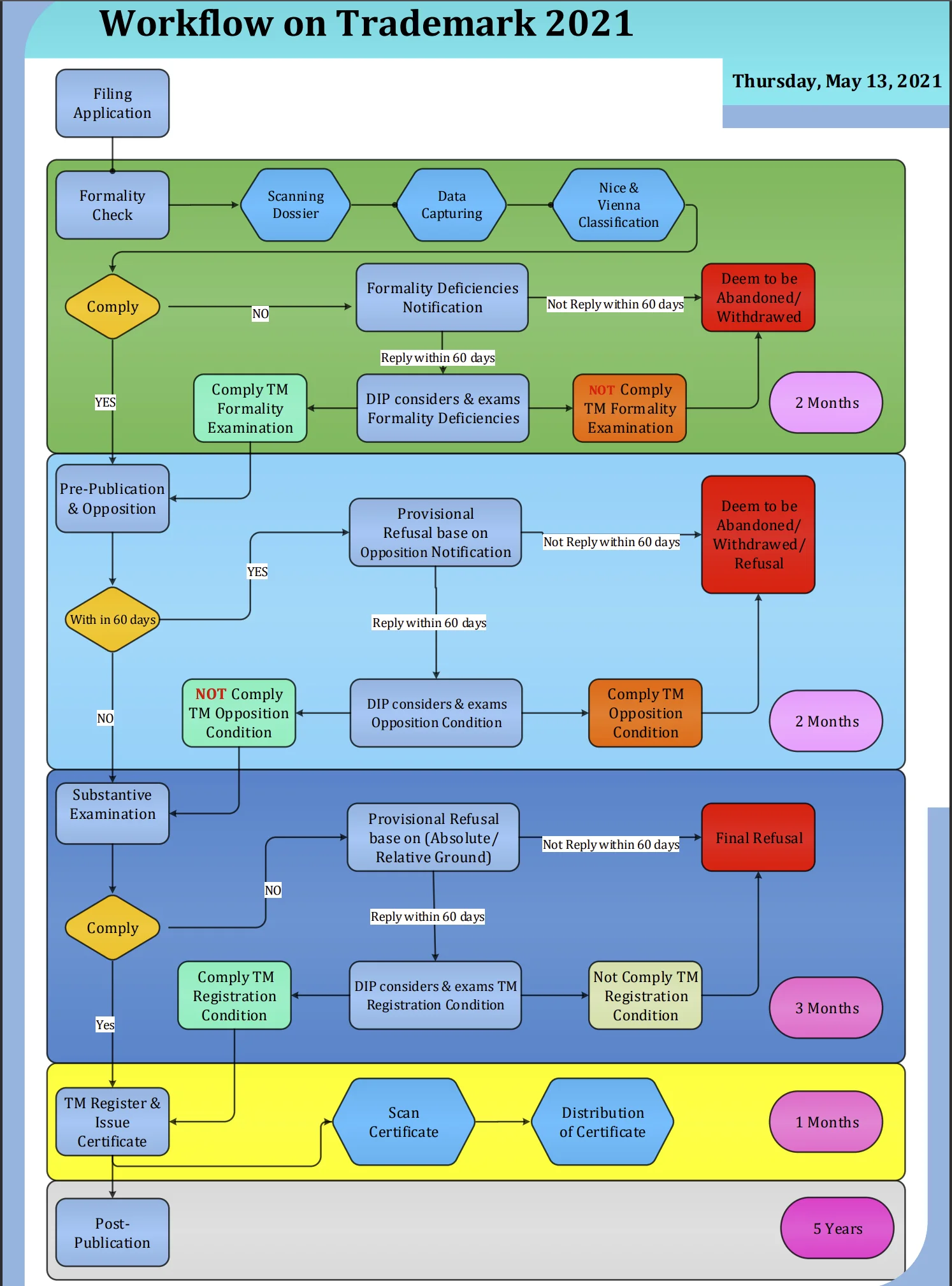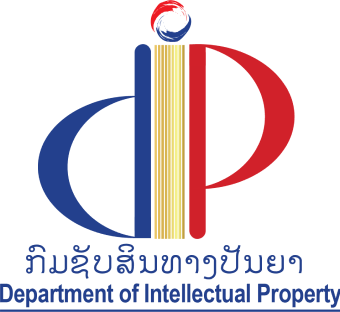What is Trademark?
Trademarks may be letters, numbers, names, words, text, photographs, drawings, designs, groups of colors, shapes or forms of objects and statistical marks.
A trademark is a symbol or a combination of symbols to be used for goods or services to distinguish between these goods or services and other goods or services.

Trademark
Service mark

Accreditation mark

collective mark
Basic knowledge about trademarks
- Trademarks may be letters, numbers, names, words, text, photographs, drawings, designs, groups of colors, shapes or forms of objects and statistical marks.
A trademark is a symbol or a combination of symbols to be used for goods or services to distinguish between these goods or services and other goods or services.
There are four types of trademarks:
- A mark for goods (Goods Mark) is a mark used for consumer goods and general consumption;
- Service mark (Service Mark) is a mark used for various services;
- Certification Mark is a mark used to certify the quality of goods or services;
- A collective mark is a mark used for goods or services produced by a group of companies or not. Company in the same branch.
Individuals, legal entities or organizations both domestically and internationally.
The term of protection is 10 years from the date of registration and can be renewed every 10 years.
Ministry of Science and Technology, Department of Intellectual Property, Department of Trademarks and Origin.
- Prevent third parties from using trademarks, service marks that are the same, similar or related to products or services that are the same, similar or related to their registered trademarks or service marks, the use of which causes confusion. The use of identical symbols for identical goods or services shall be presumed to create confusion;
- Preventing third parties from selling or advertising goods with the mark or using the mark with services and importing or exporting goods with the mark;
- To protect one’s interests according to the law from the violation of others, such as the right to sue, the right to receive compensation from the damage caused by others.
Conditions to obtain a trademark certificate
- Marks that can distinguish the goods or services of a company from other companies;
- Marks that are not the same as trademarks, registered trademarks or well-known marks;
- Marks that are not similar to registered trademarks or well-known marks;
- Symbols that do not have prohibited characteristics that are against national security, social order, culture and good customs of the nation.
Marks that cannot be registered as trademarks
The definition in the Law on Intellectual Property has been defined as: Marks that cannot be registered as trademarks are as follows:
- Marks that contain or contain the national emblem, national flag, official emblem, cultural symbol or acronym or full name of town, municipality and province, city of the Lao PDR and foreign countries without permission from the relevant government organization;
- Marks that contain or contain marks of international organizations or symbols resulting from international conventions, official seals or symbols of the state or international organization without permission from the state or the relevant international organization;
- Marks that contain or contain the name, image or likeness of a living person without permission;
- Marks that contain or contain pictures of cultural symbols or monuments, history or names or pictures or likenesses of national heroes or leaders or marks that may be defamatory or contrary to the good traditions of the nation;
- Marks that contain or contain things that may defame or show a false relationship with a living or deceased person, institution, belief or national symbol or cause defamation or damage reputation and others as defined in the intellectual property law.
| Product category | Description |
|---|---|
| Section 1 | Chemical products used in industry |
| Section 2 | Paints, polishes, lacquers; Anti rust |
| Section 3 | Perfumes, essential oils, cosmetics |
| Section 4 | Oils and fats used in industry |
| Section 5 | Things prepared for medical treatment |
| Section 6 | Construction materials made of metal |
| Section 7 | Machines and mechanical tools; Motors and machinery |
| Section 8 | Hand tools and equipment, physical weapons |
| Section 9 | Scientific tools and equipment |
| Section 10 | Pharmaceutical tools, equipment and supplies |
| Section 11 | Column 2 Value 11 |
| Section 12 | Column 2 Value 12 |
| Section 13 | Column 2 Value 13 |
| Section 14 | Column 2 Value 14 |
| Section 15 | Column 2 Value 15 |
| Section 16 | Column 2 Value 16 |
| Section 17 | Column 2 Value 17 |
| Section 18 | Column 2 Value 18 |
| Section 19 | Column 2 Value 19 |
| Section 20 | Column 2 Value 20 |
| Section 21 | Column 2 Value 21 |
| Section 22 | Column 2 Value 22 |
| Section 23 | Column 2 Value 23 |
| Section 24 | Column 2 Value 24 |
| Section 25 | Column 2 Value 25 |
| Section 26 | Column 2 Value 26 |
| Section 27 | Column 2 Value 27 |
| Section 28 | Column 2 Value 28 |
| Section 29 | Column 2 Value 29 |
| Section 30 | Column 2 Value 30 |
| Section 31 | Column 2 Value 31 |
| Section 32 | Column 2 Value 32 |
| Section 33 | Column 2 Value 33 |
| Section 34 | Column 2 Value 34 |
| Section 35 | Column 2 Value 35 |
| Section 36 | Column 2 Value 36 |
| Section 37 | Column 2 Value 37 |
| Section 38 | Column 2 Value 38 |
| Section 39 | Column 2 Value 39 |
| Section 40 | Column 2 Value 40 |
| Section 41 | Column 2 Value 41 |
| Section 42 | Column 2 Value 42 |
| Section 43 | Column 2 Value 43 |
| Section 44 | Column 2 Value 44 |
| Section 45 | Column 2 Value 45 |
Trademark’s Workflow



